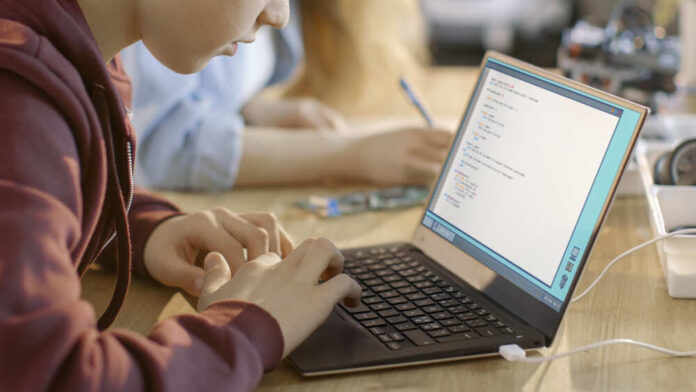
Cape Coral High School, a Florida-based educational institution known for its prestigious academic program, has recently reported an increasing number of students using the artificial intelligence (AI) chat software ChatGPT to generate essays for graded assignments. The school’s International Baccalaureate (IB) program coordinator, Katelyn A. Uhler, has sent parents an email stating that using such software violates the school’s academic integrity policy.
Uhler added that the use of AI generators has become a significant concern, with some IB papers submitted that are questionable in a few ways, including the use of different writing styles from previously submitted papers.
The school uses the automated software Turnitin to check for plagiarism. Still, Uhler pointed out that AI-generated papers can bypass the system because the output generated by ChatGPT is unique each time. As a result, the school is now using AI detectors and investigating individual students’ laptops to verify their work.
Florida High School Says Students In Elite Academic Program Are Cheating On Essays Using ChatGPT https://t.co/5yLDhL3dr3 pic.twitter.com/OUfg7XGY93
— Daily Wire News (@DailyWireNews) February 17, 2023
The IB program requires teachers to authenticate all student work. In addition, students must complete the program to earn their high school diploma. Therefore, Uhler urged parents to talk to their children at home about the consequences of using AI-generated work. School district and IB program officials condemned the use of AI to create work and are implementing measures to block its use from aiding any student work.
Students at the school say that the use of ChatGPT has already become commonplace, with some claiming that all seniors are talking about it.
Despite the concerns about plagiarism from the computer program, some educators are embracing ChatGPT as an emerging skill that students need to acquire.
Ethan Mollick, an associate professor at the University of Pennsylvania’s prestigious Wharton School, teaches classes in entrepreneurship and innovation and has formally adopted an AI policy into his syllabus. Mollick’s new policy states that using AI is an emerging skill, and students should check its results against other sources. In addition, the policy tells students they will be responsible for any errors or omissions the online tool provides.
While some educators are embracing ChatGPT as an educational tool, others are concerned that it could facilitate cheating. In response, some school districts have banned access to the bot, while others have developed apps to detect if AI has written something.
Mollick believes that educators need to teach students how the world has changed and how they can adapt to that change. He admitted that he alternates between enthusiasm and anxiety about how artificial intelligence can change assessments in the classroom. Mollick thinks that humans cannot stop cheating, but they can encourage honesty among students. His policy requires students to acknowledge when and how they have used AI. He said, “I don’t think human nature changes as a result of ChatGPT. I think capability did.”














